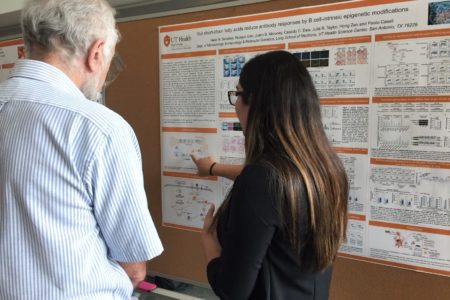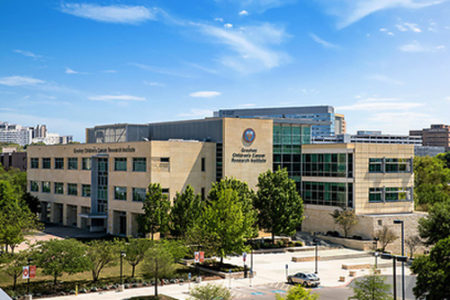About the Department of Microbiology, Immunology & Molecular Genetics
MIMG Research Areas
Research in the MIMG department focuses on bacterial, fungal, parasitic and viral pathogens, as well as on immunology in health and disease. Research interests are grouped into three main areas of focus. Refer to individual faculty pages for additional information.
Microbial Pathogenesis and Host-Pathogen Interactions
This research area explores both fundamental and applied aspects of microbiology and the immune response to infection.
Key topics include:
- Mechanisms of fungal, bacterial, and viral pathogenesis
- Immune responses in the oropharyngeal, respiratory, gut, brain and reproductive tissues
- Omics of the microbiome
Faculty: Bunnik, Ge, Kadosh, Kannan, Salamango, Tumanov, Wickes, Xiang, Zadeh, Zhang and Zhong
Immunobiology of Vaccines
This research focuses on uncovering the cellular and molecular mechanisms that drive effective immune responses against pathogens, informing vaccine development.
Key topics include:
- Generation of memory T and B cells, plasma cells and protective antibodies
- Vaccine development for sexually-transmitted diseases and malaria
Faculty: Bunnik, Casali, Leadbetter and Zhong
Basic Immunology and Autoimmunity
This area investigates fundamental systemic and tissue-specific immunology, the molecular basis of autoimmune disorders, and tumor immunology.
Key topics include:
- Biology of T, B, NKT, and innate lymphoid cells
- Lupus and other autoimmune diseases
- Immune system development and antibody production
- Epigenetic and metabolic regulation of immune responses
Faculty: Ge, Casali, Griffith, Morel, Tumanov, Xiong, Xu, Zadeh and Zhang
What we do

Events & Seminars
Our department hosts a weekly seminar series in which nationally acclaimed experts in the fields of microbiology and immunology are invited to speak. In addition to our departmental seminar program, many other high quality seminars are hosted by various basic science and clinical departments from around the Long School of Medicine, allowing our students and fellows to receive robust and broad exposure to the biomedical and translational sciences.
Institutional Research Cores
The UT Health San Antonio Core Facilities offer a broad range of cutting edge research services and provide educational training opportunities that achieve a vital function of our university’s mission. The core facilities, led by internationally-recognized faculty advisors and expert technical staff, are available to students, faculty and staff across the university and biomedical research community.


